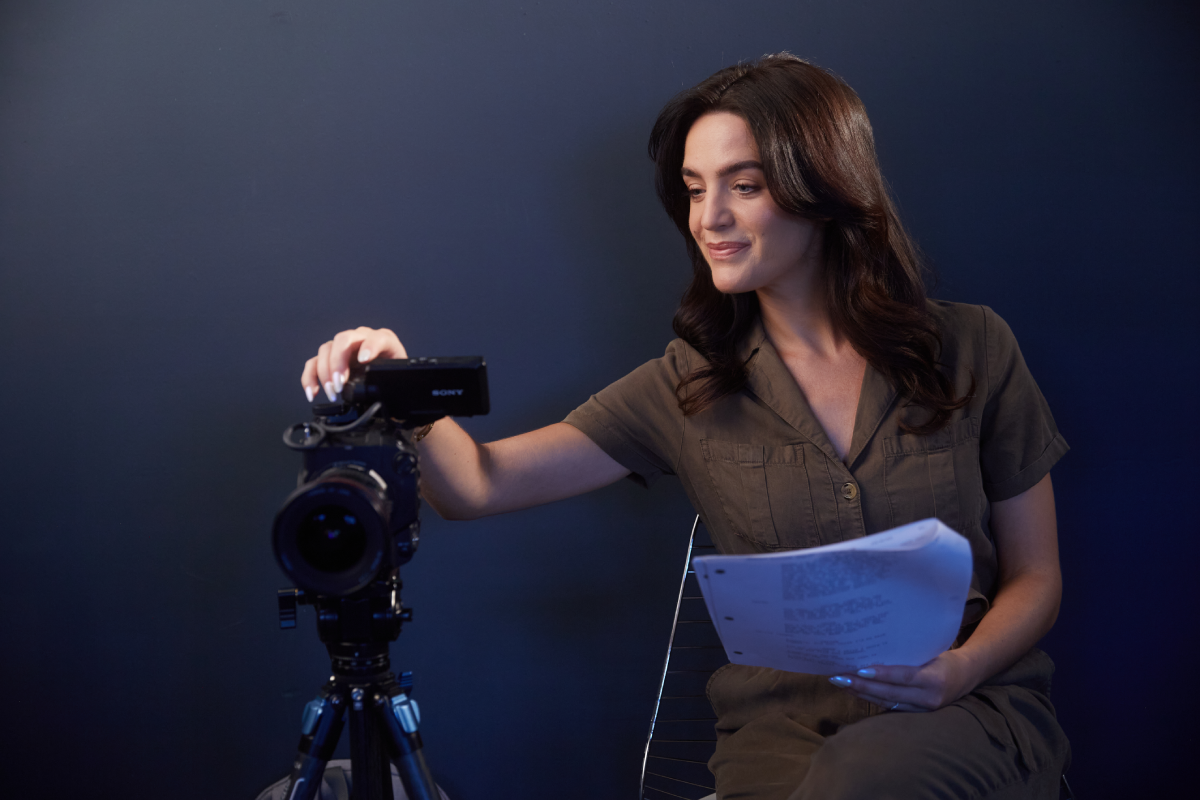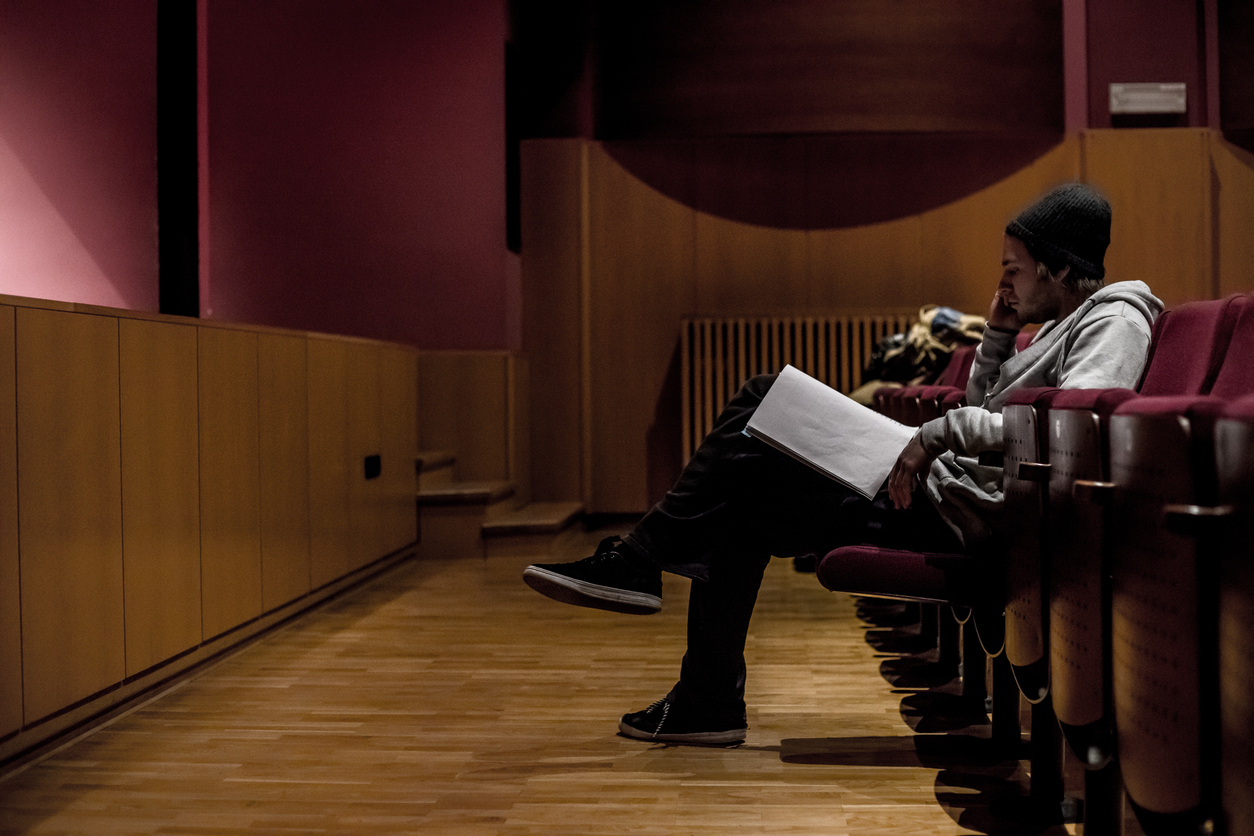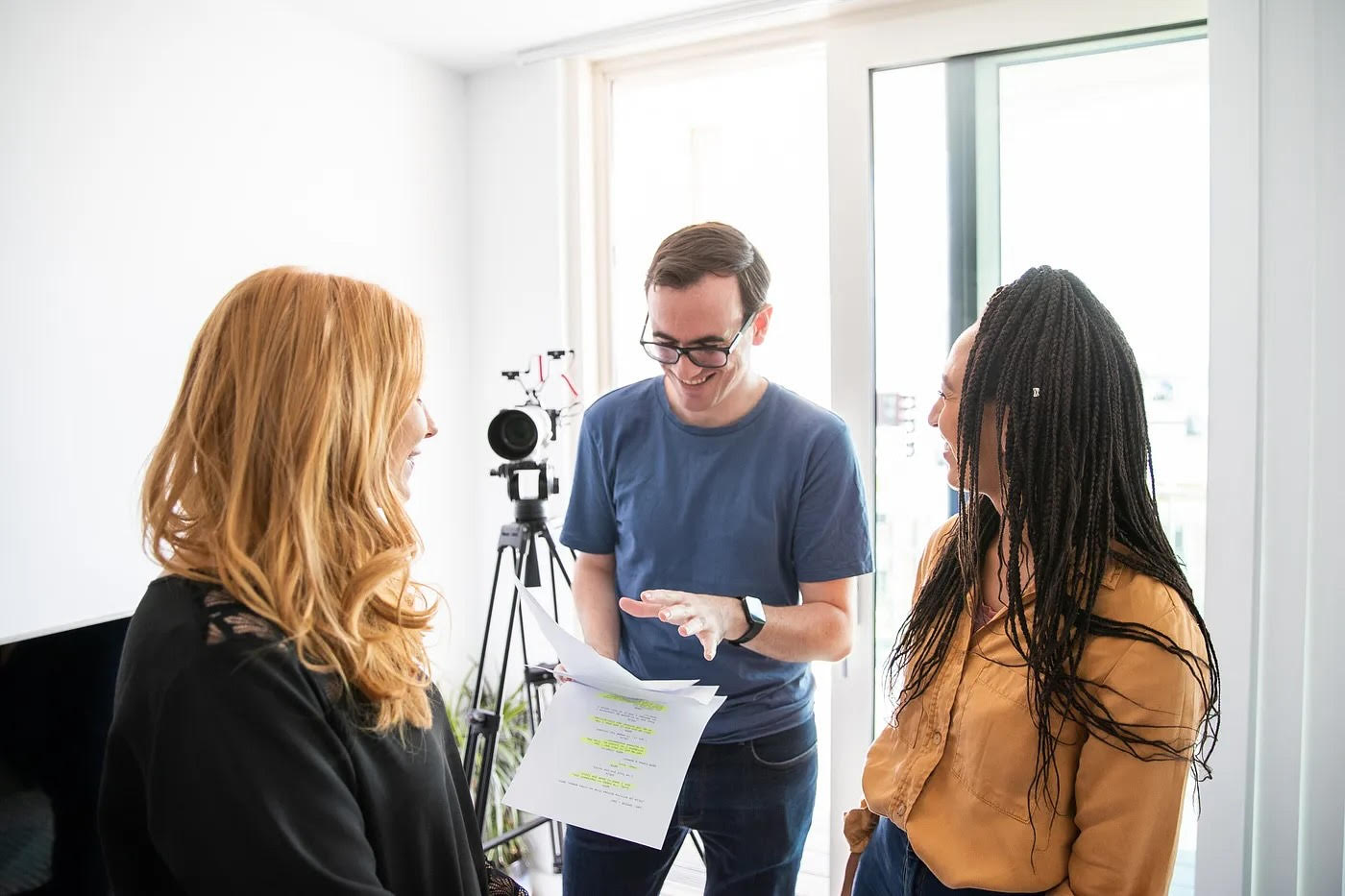Tips for finding monologues for a showcase, and how to know which one is the right one for you to perform.
We’re often asked where to find monologues for showcases. With so many resources available both online and in libraries, how do you go about starting your search? And how do you know which of the thousands is the right one for you to perform? We put those questions to the finalists of this year’s Spotlight Prize to get their tips.
What is a monologue?
A monologue is a speech given by a character in a story, theatre production or film. It’s a scene where only one character speaks, usually talking to themselves, addressing another character or even addressing the audience. They’re a great way to give the audience more information or backstory about a character, to show their internal thoughts or to give more details about the story’s plot.
Where can I look for a monologue to perform at an audition or showcase?
At the Spotlight Prize, graduates from drama schools are asked to select and perform two monologues – one for stage and one for screen. We asked the finalists at this year’s showcase where they found their pieces and why they chose them.
Libraries
Drama school libraries are a goldmine of useful texts. There are also places like the National Theatre Collection and National Youth Theatre monologues that have countless books and plays to scour. You may need to sign up and, in some cases, request permission to perform certain texts, but these can be a great resource if you have the means to access them. There are also plenty of open-source online libraries, which leads us to our next suggestion…
The Internet
A quick search for ‘monologue libraries’ and ‘monologues for actors’ brings up thousands of results. Blair Malone suggests Script Slug as a useful site for finding screenplays. The Mono Box’s Monologue Library is an excellent place to look as they have over 100 audio recordings from artists such as Riz Ahmend, Adjoa Andoh, Paapa Essiedu, Vanessa Kirby, Sir Simon Russell Beale and many other notable performers.
Recommendations
If you’re drawing a blank, why not ask friends and family for their suggestions, or crowdsource ideas from other actors in your network? A surprising number of the finalists did just that, and their friends’ recommendations helped them to discover works they may not have thought of otherwise.
Pick Something You’ve Used Before
In the words of Spotlight Prize 2022 winner Angela Jones, “If it ain’t broke, don’t fix it.” The monologue that Angela performed at the showcase is the same one she auditioned with to get into drama school. She explains, “It’s a nice reliable one that I really love and has grown with me.”
Write Your Own
If you’re feeling inspired, you could always write your own like finalist Bill Caple who did just that. “I wouldn’t really consider myself a writer,” he says, “but I’d used it earlier in the year. And it kind of worked quite well for me. It showcased me in the best way because I wrote it.”
Bill wasn’t the only one who wrote their own piece. Performer Lewis Shepherd also decided to put pen to paper. “I feel like someone’s already done it on the screen and probably did it better than I did. So I’d rather just write it and know that I can say these words, how I want to say them and it fits.”
We have this useful guide on how to write your own monologue if this is something you’d like to do.
How to Choose a Monologue
How do you know when a monologue is ‘the one’? When selecting one to perform, you may want to ask yourself:
- Is it the right length? Something around two minutes in duration is ideal.
- Is it active? Can the text be taken out of the structure of the play and still work? Look for pieces that have a clear objective to fulfil.
- Is it entertaining? You only have a limited time with the audience so you want to engage them quickly.
- How does it make you feel? Do you connect to the words when you say them out loud and can you build a performance around them?
The Spotlight Prize finalists have these tips to share:
Go with your gut
Many of the performers made reference to going with your first instinct when selecting your text. Imogen Ogden says, “I honestly spent months looking at monologues and I chose the first piece that I found months ago.”
Fellow finalist Victoria Wyant adds, “I had a gut feeling about doing monologues right at the start. I was like, “No, no, no, no, I can’t do those. I have to find something fresh and crazy.” And then I went to the National Theatre and read three-quarters of the bookshelves worth of plays, and then ended up doing the two that I found originally.
Find a monologue you can play with
When you read a monologue out loud, do you feel you can play with it and build a performance around it? Performer Nina Mahdavi says of the one she performed on stage, “It just spoke to me when I read it. I could see potential in it and I could definitely see ways I could play with it.” Fellow actor Os Leanse goes on to comment, “Find something that just jumps off the page at you. And that immediately [makes] you want to get up, and it has an energy to it.”
Pick something that speaks to you
When you’re reading through endless plays, pay attention to any that you identify with. This was a running theme with many of the finalists speaking on the subject. Actor Blaize Alexis-Anglin explains “I scoured the internet looking for monologues that were contrasting but that also meant something to me.” Imogen Ogden says that the text she picked “felt like home” and Blair Malone adds that he knew the piece he picked was the right one as he “read the script and fell in love with it.”
Don’t overthink it
And the final piece of advice comes from Os Leanse who says when it comes to choosing monologues, “It’s important not to overthink them on long choice, because you could just go down a massive rabbit hole. Just pick something you like that you connect with.”
Thanks to our finalists for their tips and advice!
We have a great article from The Mono Box about how to choose a monologue that gives eight helpful tips about selecting writing that works for you. If you need further help, we have more articles for you to read about selecting, preparing and performing monologues as well as plenty of tips to help you with auditions.


















